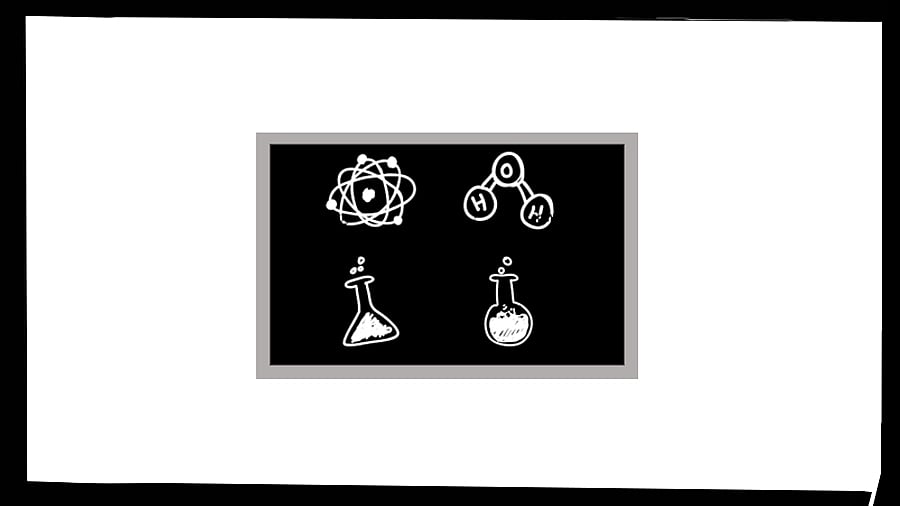
Scientific temper is essential for building an inquisitive, democratic, and progressive society. In India, despite significant developments in science and technology, the scientific mindset has not been able to enthuse our society successfully. This shortfall is a direct result of an education system that prioritises rote learning, relies on outdated teaching methods, and suffers from a lack of trained science teachers and effective communicators. Consequently, learners are seldom encouraged to ask questions or engage in meaningful knowledge construction. Scientific thinking, as Karl Popper rightly asserted, is rooted in doubt and challenges to established norms.
Science education in India is at a critical juncture. One of the most debated proposals from the National Education Policy (NEP) is the integration of Indian Knowledge Systems (IKS) into the curriculum. While this proposal is commendable – students must explore ancient India’s significant contributions to science, medicine, and mathematics – the real challenge lies in how these systems are presented and who decides what qualifies as legitimate knowledge. We must approach this integration critically. The policy encourages the inclusion of IKS in curricula, which encompasses Ayurveda, Vedic mathematics, astronomy, linguistics, and even metaphysics, without differentiating between empirical, falsifiable knowledge, and faith-based cultural practices.
Middle school science education has a shaping influence on how students perceive the world. But today, it is at the intersection of politics, tradition, and pedagogy. Middle school marks the transition from intuitive learning to formal disciplines. This is where students need to be taught how to pose the question, “Is this true?” instead of “Does this affirm my belief?” It’s also the time ideological distortion can do lasting cognitive damage – shaping worldviews based on nostalgia rather than evidence. If students are taught that mythology equals science, or that inquiry must defer to cultural pride, we risk creating generations of passive learners who merely accept everything without questioning.
The phrase “scientific method” is notably absent from the NEP 2020 document. While there is an emphasis on “critical thinking” and “curiosity,” no framework is provided to differentiate science from pseudoscience or logic from belief. In a country grappling with superstition, misinformation, and religious dogma, science education must equip students with the tools to question, test, and revise their understanding of the world – not merely celebrate cultural heritage. This omission is particularly disconcerting when combined with recent state-level changes to textbooks that have downplayed evolution, excluded Mughal history, and promoted unverifiable claims about ancient India’s technological achievements.
Textbook sidebars such as “Did You Know?” often romanticise the past without offering critical analysis, referring to ancient innovations with little explanation of their scientific validity and inadvertently fostering respect over reasoning. The contributions of figures like Aryabhatta in astronomy or Susruta in surgery can be inspirational, but they should be presented in a historical context with accuracy and scientific objectivity.
There is growing concern among scientists and educators that topics like evolution and human origins – traditional targets of ideological opposition – may be further marginalised under the NEP. Revisions to textbooks, presented as “curriculum rationalisation,” have led to the removal of entire chapters on evolution and the periodic table from the Class 10 syllabus. The NEP’s focus on “flexibility” and “local knowledge,” may further dilute essential scientific content, especially when it conflicts with religious or political sensitivities.
To safeguard the integrity of science education, it is crucial to promote critical thinking and empirical inquiry – we must distinguish scientific knowledge from traditional beliefs. While IKS offer valuable cultural insights, they should be taught alongside modern scientific concepts, subject to empirical investigation, and eventually evaluated using evidence-based reasoning.
More than mere text
From a very early age – preferably starting in Class 6 – students should be taught the fundamental principles of the scientific method, including hypothesis testing, observation, experimentation, and the essential principle of falsifiability. These skills are crucial for developing a scientific mindset. Another important area is transparency in the revision of educational materials. Changes to textbooks should be conducted through a public process, guided by scientists and educators, to ensure that content is not influenced by ideological biases. Teaching scientific topics such as evolution, climate change, and human physiology is essential. These subjects must be presented fully, without apology or dilution, so that students receive a comprehensive and accurate scientific education.
Additionally, we must introduce exercises that encourage students to critically compare modern scientific interpretations with traditional explanations. The juxtaposition should be conducted in a way that fosters curiosity and appreciation for alternative knowledge systems, rather than promoting blind acceptance. If implemented, these measures will not only enhance science education in India but also cultivate a generation skilled in critical thinking, enabling them to bridge gaps and thus contribute to a more intricate society.
Science texts are more than mere instructional materials; they are political documents that reflect what a country chooses to teach its children about knowledge, truth, and the importance of questioning. The NEP, despite its aspirational rhetoric, does not ground science in reason. Instead, it allows ideology to disguise itself as fact. Meanwhile, textbooks often prioritise cultural pride at the expense of critical insight. In an age of climate crises, pandemics, and technological revolutions, we cannot afford science education that caters to sentiment. We need classrooms that serve as laboratories of inquiry, not altars of nostalgia. The pressing question is not whether Indian science education is being politicised, but whether we will protect the integrity of science or allow it to become a casualty of cultural appeasement.
Children should learn not only scientific content but also the processes that generate that knowledge. Reforms in curriculum, pedagogy, and evaluation, combined with the infusion of scientific reasoning across disciplines, are essential for developing a society that consistently asks “why” and applies rationality to solve real-world problems.
(Navneet teaches at Central University of Himachal Pradesh, Dharamshala; Gurubasavaraj teaches at Rani Channamma University, Belagavi)
Disclaimer: The views expressed above are the authors' own. They do not necessarily reflect the views of DH.